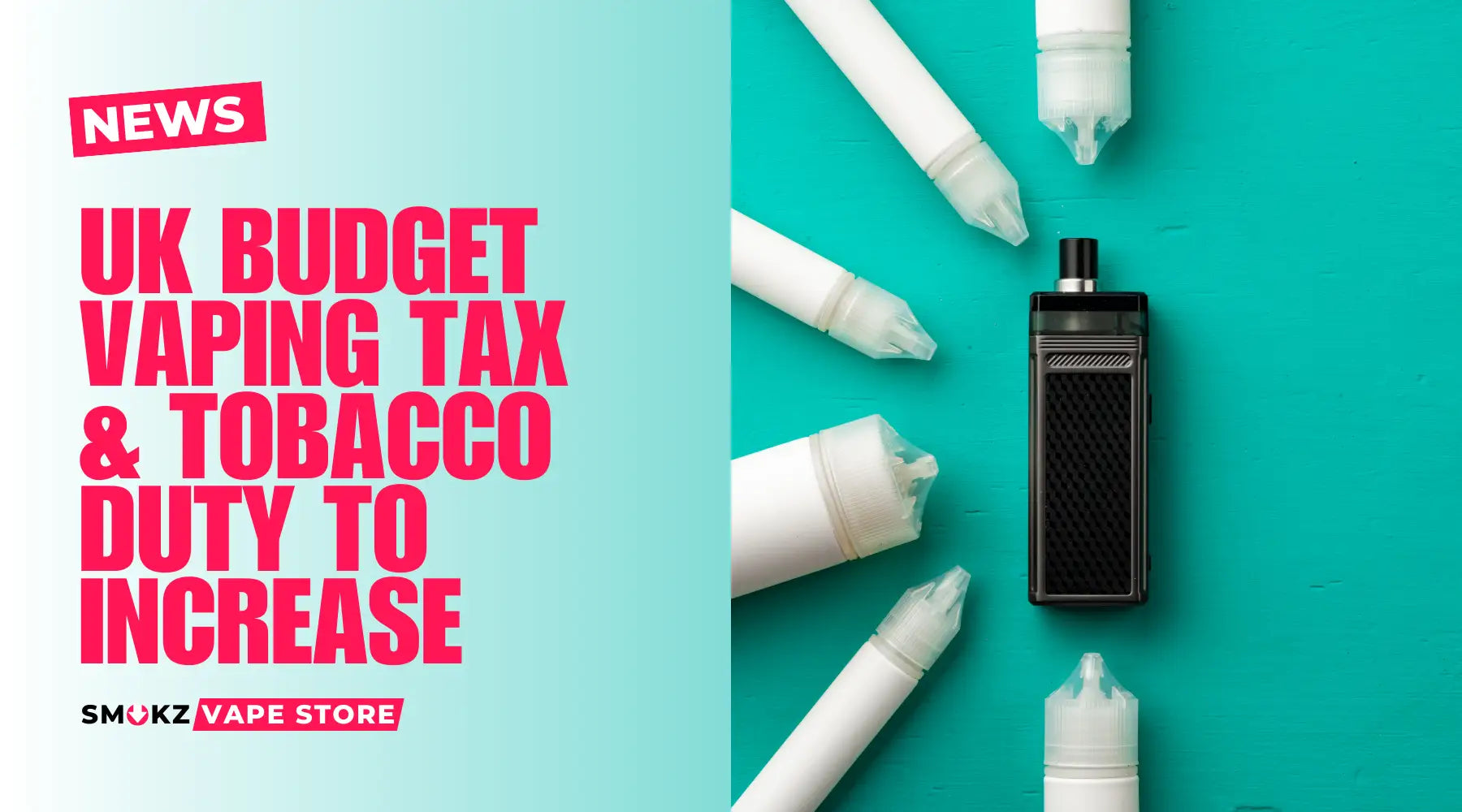UK Budget 2024 Summary
In a decisive move, vaping tax and tobacco duty rises set out in Rachel Reeves' budget announced new measures in the UK aimed at addressing the health impacts of smoking and vaping. The proposed vaping tax and tobacco duty rises target both traditional tobacco products and e-cigarettes, responding to concerns about rising nicotine addiction rates and the rapid uptake of vaping, particularly among young people. This blog examines the key points of the new tax proposals and what they mean for vapers, smokers, and public health in the UK.

Key Points of the Proposed Vaping and Tobacco Taxes
-
Increased Duty on Tobacco Products
Traditional tobacco products, including cigarettes and rolling tobacco, will see an increase in duty, reflecting the government’s ongoing commitment to discourage smoking through higher pricing. This measure aligns with health initiatives to reduce smoking rates across the country and decrease associated health risks.
-
New Vaping Tax Introduced
For the first time, a specific tax on vaping products will be introduced, aimed at curbing the rising popularity of vaping, particularly among young people. The vaping tax will apply to e-liquids, disposable vapes, and vape kits. Details on specific rates are expected soon, but the tax is anticipated to drive up prices for vape users, making it a costlier habit.
-
Youth Vaping Concerns
The move follows growing concern about the rapid uptake of vaping among youth, with data showing that 30% of UK youth aged 11-17 have tried vaping at least once, and 15% of those aged 18-24 vape regularly (NHS Digital, 2023). By increasing the cost of vaping products, the government aims to make them less accessible and attractive to young people, who may not fully understand the risks associated with nicotine addiction.
-
Revenue Allocation for Public Health Programs
Revenue from the increased taxes on tobacco and vaping is set to be reinvested in public health initiatives. Funds will be allocated toward anti-smoking campaigns, education on the risks of nicotine addiction, and support programs aimed at helping individuals quit smoking and vaping.
-
Impact on Low-Income Smokers and Vapers
While the tax aims to address public health concerns, it may place an additional financial burden on low-income smokers and vapers who are trying to quit. To counter this, some health advocacy groups are calling for expanded access to cessation programs to help individuals quit rather than continue with a more expensive habit.
Potential Impact on the Vaping and Tobacco Industry
These new measures are expected to have several effects:
-
Higher Vaping Costs:
The cost increase may deter some people from using vape products, but it could also strain regular users who rely on vaping as an alternative to smoking.
-
Reduced Consumption:
Historically, increased prices have been effective in reducing smoking rates. A similar outcome is anticipated in the vaping industry as the cost increases.
-
Industry Adjustments:
The vaping industry may respond by modifying product offerings or introducing smaller, less expensive items to maintain affordability.
Public Reactions and Expert Opinions
Public and expert opinions on the vaping tax are mixed. While many health professionals support the initiative, hoping it will discourage vaping among youth, some argue that raising prices could hinder smokers trying to quit by using vaping as a less harmful alternative. Health economists suggest that an effective tax policy should balance discouraging youth vaping with ensuring that adult smokers still have access to viable smoking cessation tools.
What This Means for the Future of Vaping in the UK
As vaping tax and tobacco duty increases take effect, the UK is setting a precedent for managing the public health implications of nicotine products. While this shift may initially spark resistance from a vaper and the vaping industry, it aligns with broader efforts to promote healthier lifestyles, particularly for the younger generation. As the government prioritises health over convenience, the success of these measures will likely depend on the balance between revenue generation, public health impact, and support for addiction recovery programs.
References:
- BBC
- Action on Smoking and Health - ASH
- NHS Digital
- Health Action Research Group
- Oxford Academic
- International Monetary Fund (IMF)
- Cambridge Dictionary
